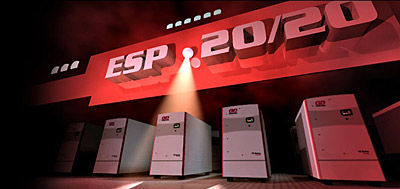Reduce Compressed Air Costs by 25-50% With an Air Audit
Compressed air systems are often the largest energy consumers in industrial applications. Because each system has it’s own unique needs, we provide a tailored approach to compressed air audits.
A compressed air system audit can uncover the real costs of your compressed air system and identify simple energy-saving opportunities
When aiming to decrease operating expenses related to compressed air, companies often fail to recognize the potential savings that can be achieved through efficient management of their compressed air systems. According to experts, a significant majority of users could potentially reduce their costs by 25-50%.
Lewis Systems offers professional audits for compressed air, specifically designed to uncover substantial cost reductions. These audits involve a meticulous assessment of current flow rates, energy consumption, and operating pressure. The data obtained from these audits is crucial for identifying areas of improvement within your air system. It’s worth noting that many plants currently operate with 50% more compressed air horsepower than necessary for their operations. Undergoing an air audit not only leads to gradual operating cost reductions but also results in positive environmental benefits.
Get a Comprehensive Air Audit With Lewis
Discuss the potential benefits of compressed air audits in Charlotte NC, Raleigh NC, Greensboro NC, and Lynchburg VA with Lewis Systems Compressed Air Audit Professionals. Measuring flow (scfm), power (kW), and pressure (psi) presents an accurate profile used to determine Dynamic Efficiency. This data tells us what cost-saving options benefit you: Options that will improve your energy efficiency and save thousands of dollars in operating cost. Contact Lewis Systems today for an air audit.
Testimonial
In the fall of 2008, Lewis Systems & Service was contracted by Graham-White to perform a supply side compressed air audit at our main manufacturing facility in Salem, VA. The audit was performed on two plant systems. The first system provides low pressure compressed air for general use in the manufacturing processes. The second system provides higher pressure air used in testing Graham-White’s products.
During the week-long audit Lewis Systems recorded flow, pressure and amps for each compressor at 12 second intervals. After the audit was complete, Graham-White was provided with a complete study showing all of the captured data along with recommendations for improvements.
In the case of the test air system, one of the recommendations was to simply designate a smaller, existing compressor as the primary unit and utilize another compressor to automatically trim the load based on demand. This small change promised to save Graham-White approximately $10k per year in energy costs.
The recommendation with the greatest money saving potential was to purchase and install a Gardner-Denver model VS80 variable speed rotary screw compressor. The variable speed machine adjusts its speed to the demand for air based on downstream system pressure. The projected energy savings was around $17k per year. After the machine was purchased and installed a justification audit was performed, the actual savings was over $21k.
Ben Grisso
Graham-White Manufacturing
Top 10 Reasons for a Compressed Air Audit
- Find and Stop Leaks
- Reduce Unnecessary Pressure
- Set the Correct Air Pressure: Make Supply Meet Demand
- Replace “T” connections: Less turbulence = Less pressure loss
- Replace Old, Corroded or Wrong-Sized Pipes
- Remove Restrictions: Clogged Filters, Unused Equipment
- Evaluate Storage: Air Receiver + Compressed Air Piping
- Regulate Air Use: Air Costs more than Electricity
- Verify the Correct Pump for the job (Air vs Electric)
- Ensure Proper Maintenance
Leading Causes of Wasted Compressed Air

Additional Resources:
Remote Monitoring
Join the smart services revolution with cutting edge wireless technology.
What’s the best way to assure that your air compressors are being taken care of? The answer is, let Lewis Systems monitor them. Through Gardner Denver’s state of the art wireless technology, we can assure your compressors are properly maintained and serviced.

This will avoid unnecessary downtime by:
- Resolving small problems before they become big ones
- Immediate notification of advisories and alarms
- 24/7 remote visibility of the compressor
- Troubleshoot prior to site visit
- Reduce response time
- Manage maintenance scheduling
Wireless Advantages:
- Eliminates time and expense of running CAT5
- Eliminate IP configuration and network setup
- Totally isolated from the IP network
- No application software to load or maintain
Locations


